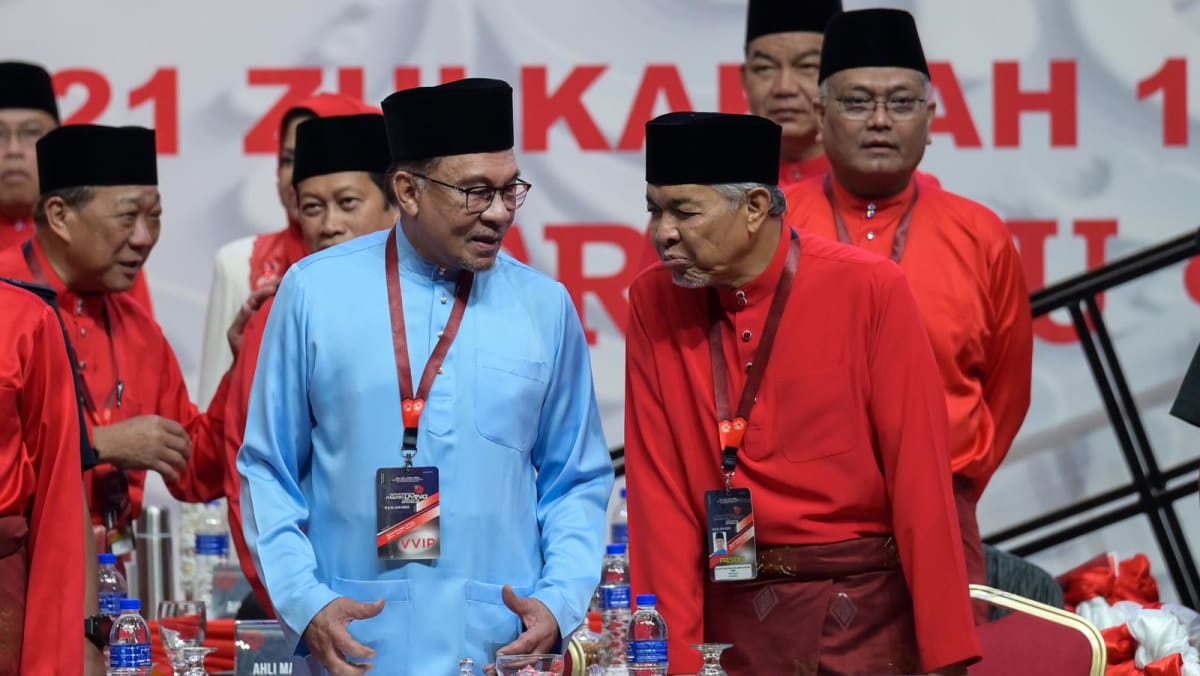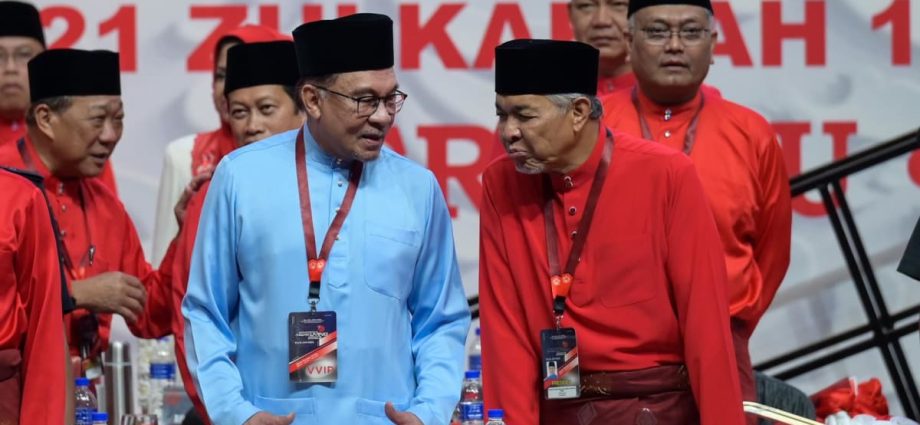
Najib is currently serving a 12-year jail sentence after being convicted of misappropriating RM42 million (US$9.1 million) belonging to SRC International, a former 1MDB subsidiary.
The former UMNO chief continues to have major influence and support among party leaders and is seen as a key unifying figure.
“It has been a year since Datuk Seri Najib has been imprisoned and there has not been any justice for him,” Mr Isham told CNA.
He suggested that BN might have stood a better chance in recent polls if Najib had been campaigning alongside UMNO candidates.
In April, UMNO announced that it was submitting a petition for a royal pardon for Najib to Malaysia’s King Al-Sultan Abdullah Ri’ayatuddin Al-Mustafa Billah Shah.
DAP chief Anthony Loke later stressed that the petition was a party matter within UMNO, and not the stance of the unity government.
DAP members have also been quoted by local media as saying that expediting or supporting a pardon for Najib is a red line they are not willing to cross as partners in the unity government.
The royal pardon is determined by a Pardon Board, which is chaired by the king. Prime Minister Anwar is also a member of the board.
Analyst Dr Jeniri stressed that if the unity government pushes for Najib to be pardoned, this might appease BN supporters.
But he stressed that the move could trigger discontent among Anwar’s PH partners, as Najib’s pardon is seen as a non-negotiable compromise for some leaders.
“Najib is a popular figure not only inside UMNO but also outside the party. He has an aura, he can boost support towards the unity government,” said Dr Jeniri.
“But I don’t think pushing for a pardon is doable and palatable at this juncture,” he added.
Commenting on how PH-BN ties might unfold post state elections, political analyst Hafidzi Razali acknowledged that the two coalitions will always have significant issues to navigate around.
The associate director with strategic advisory firm Bower Group Asia acknowledged that the clout over Najib’s case could haunt ties. He added there will continue to be clashes in matters relating to policies, political appointments and electoral seat negotiations.
However, Mr Hafidzi maintained that there is a possibility for strong partnership if both sides learn to compromise.
“In the context of the different issues that arise, there will be concessions needed. But the hope for PH-BN is that their leaders find a win-win scenario when these issues arise,” said Mr Hafidzi.

